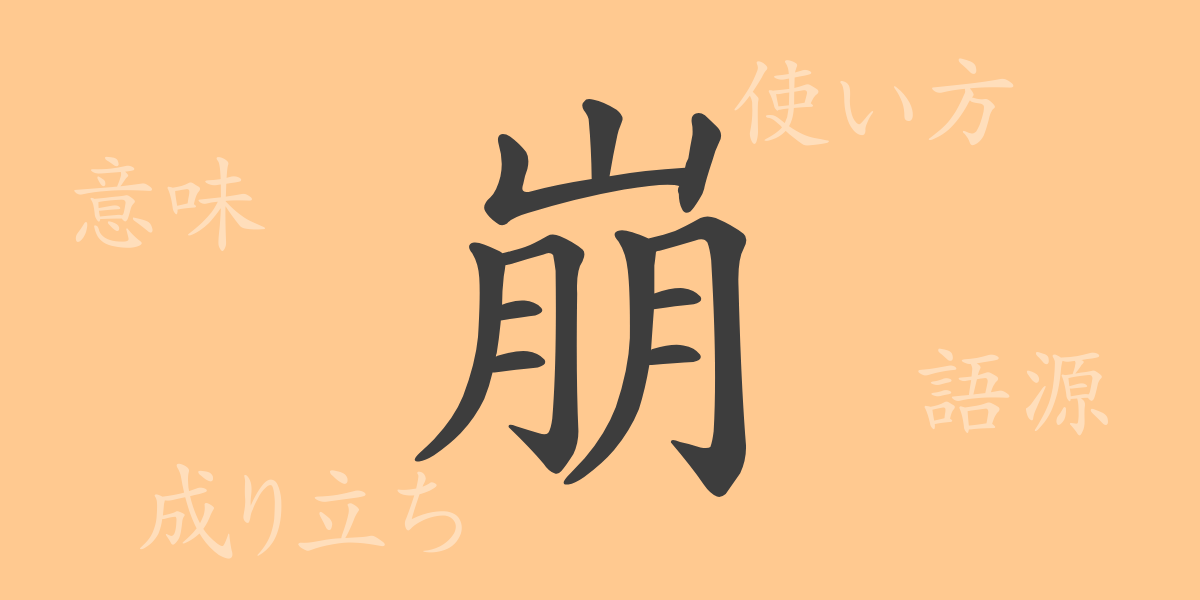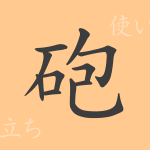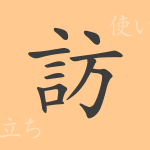Japanese contains thousands of kanji characters, each with its own unique history and meaning. Today, we are delving into the kanji character “崩 (hō).” What stories are embedded in this single character? From the etymology of “崩 (hō)” to its modern usage and common phrases heard in everyday conversation, we will uncover the rich expressive power of this kanji.
The Origin (語源) of 崩 (hō)
The kanji “崩 (hō)” is derived from a pictographic character that symbolizes the collapse of a mountain. In ancient China, the sight of mountains or rocks crumbling represented the grandeur and power of nature, and this powerful image was embedded into the character. Over time, this kanji has come to hold various meanings, but its fundamental concept has remained unchanged, passed down to the present day.
Meaning and Usage of 崩 (hō)
“崩 (hō)” primarily means “to collapse” or “to break down.” This can refer to physical disintegration as well as the failure of organizations or systems. Additionally, it can be used as an adjective or verb. For example, “崩れる (kuzureru)” describes something breaking down and losing its form. This term is applicable not only to physical objects but also to abstract concepts like plans.
Reading, Stroke Count, and Radical of 崩 (hō)
The kanji “崩 (hō)” can be further understood through its readings and components.
- Reading: On’yomi (音読み) is “ホウ (hō),” Kun’yomi (訓読み) is “くず.れる (kuzureru)” and “くず.す (kuzusu)”
- Stroke Count: 11 strokes
- Radical: 山 (やまへん, yama-hen)
Idioms, Proverbs, and Phrases Using 崩 (hō)
Idioms and phrases containing “崩 (hō)” reflect the meanings embedded in the kanji. For instance, “崩御 (ほうぎょ, hōgyo)” is a respectful term used to describe the death of an emperor or royalty. “城崩れ (しろくずれ, shirokuzure)” literally means the collapse of a castle, and metaphorically it signifies the downfall of an organization or system. Additionally, “崩壊 (ほうかい, hōkai)” emphasizes the complete breakdown of something from its foundation.
Summary of 崩 (hō)
The meaning embedded in a single kanji character speaks volumes through its form and history. “崩 (hō)” is a powerful kanji that starts with natural phenomena and extends its influence to various aspects of human society. The idioms and phrases using “崩 (hō)” in everyday conversation and literature highlight its importance in the Japanese language. Through this exploration, we have gained an understanding of the rich expressive power and historical background of “崩 (hō).”
“`

























